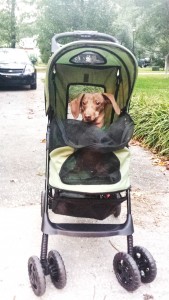We see lots of senior pets in practice. Here are a few pointers you can share with your clients!
1) Good Nutrition- all senior pets need a diet that is tailored to keeping them healthy. All foods are not created equal. You must talk to your veterinarian about which diet is best for your pet. For example, a dog with early kidney disease should be on a lower protein diet. A dog with constipation issues may need more fiber. Less active dogs may need a senior food with lower calorie content.
2) A Good Quality Bed- a nice supportive bed to lay on is beneficial to their joints and muscles as they age. While they may prefer to rest on the cool tile, having a bed available to them is important. Crib mattresses make great dog beds (they can't be soiled, they have plenty of room, and they have great orthopedic support)!

3) A Daily Walk- most dogs benefit from daily walks. Just to get out and stretch their legs and move around helps with mobility longer term. Nothing rigorous is necessary. Just getting out for a walk is good for body and mind and is special bonding time between dog and owner. Many senior pets will just sleep all day, so getting them up for that walk helps to keep them mobile. If your pet can't walk for some reason or tires quickly, consider taking them out for a "stroll" instead or when they get tired! If they are not used to going for walks, start small. A walk down to the end of the sidewalk or block may be a good place to start until you know their limits. Never go out when it is too hot. Older dogs overheat more easily and may exert themselves more.
Read More



